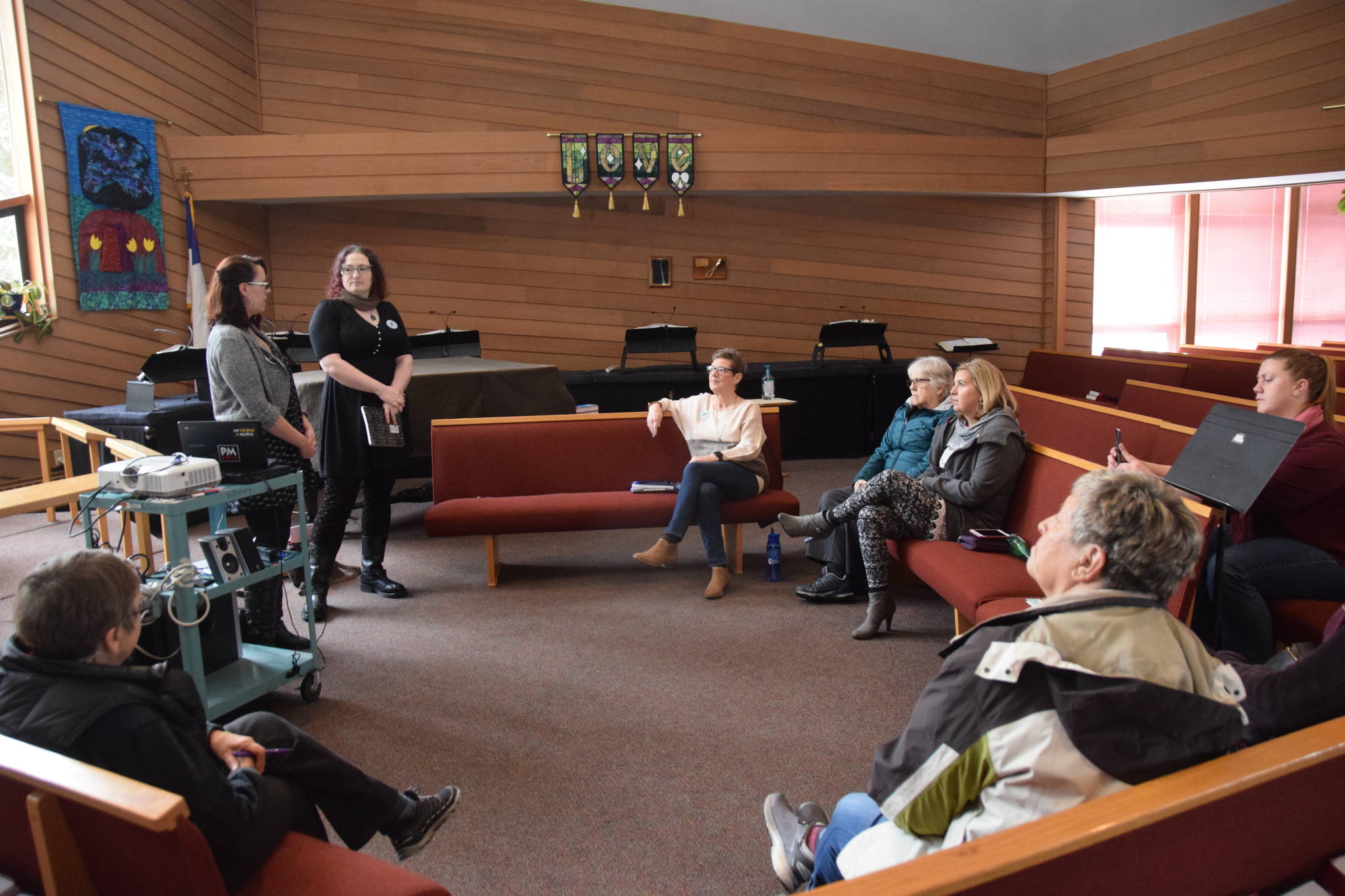The Alaska Legislature may once again consider a measure that would make it illegal for officers to have sexual contact with sex workers before arresting them.
In 2017, two bills — HB 73 and SB 112 — were introduced on the issue, but were met with pushback from local law enforcement agencies, including Anchorage Police Department.
An Alaska-based advocacy group, Community United for Safety and Protection (CUSP), was the main proponent for the legislation in 2017, and this year CUSP is back in the fight.
Activists from CUSP held a meeting at the Christ Lutheran Church in Soldotna on Monday where they laid out their plan to remove legal gray area from the Alaska criminal code on sexual contact between police officers and those they are arresting.
Terra Burns, an advocate with CUSP who led Monday’s meeting, said that CUSP is pushing for an amendment to a House bill currently under consideration — HB 52 — that would make it illegal for police to have sexual contact or sexual penetration during an investigation. HB 52 is the House companion bill to SB 35 and would update the criminal code around sexual assault in various ways. SB 35 was introduced by Gov. Mike Dunleavy’s office and includes eliminating marriage as a defense in sexual assault cases, classifying sending unwanted pictures of genitalia as second-degree harassment, and requiring anyone registered as a sex offender in another state to also register in Alaska upon moving here.
On Friday, the public will have the opportunity to testify on HB 52, and CUSP is urging people to call in and ask that legislators amend HB 52 to include language that would officially criminalize sexual contact and sexual penetration between police officers and those whom they are investigating by classifying these practices as third- and fourth-degree sexual assault. The public testimony starts at 1:30 p.m. and people can call 1-844-586-9085 to testify.
When similar legislation was being debated back in 2017, the Department of Law sent a letter to the state Legislature clarifying that it is “neither legal nor acceptable for a law enforcement officer to engage in sexual conduct with a person that that officer is investigating.”
While there is no specific statute that defines this practice as a crime, the letter mentioned several other criminal statutes that an officer violates by engaging in sexual conduct, including sexual assault that involves coercion. Police departments may also have administrative guidelines that either discourage this as conduct unbecoming of a police officer or not demonstrative of good “moral character,” which is a statutory requirement to be a police officer in the state of Alaska. A copy of the DOL’s letter is available on CUSP’s website.

